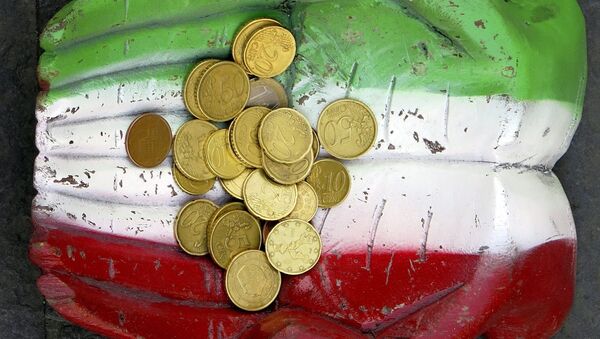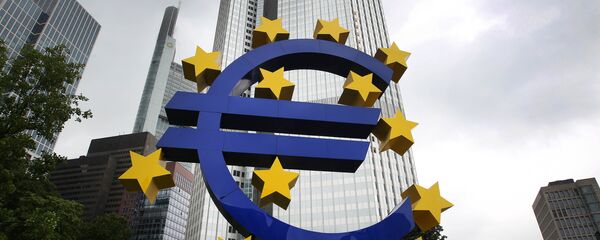From 23-26 May 2019 Europeans will have the chance to determine the future of their continent during the European Parliament elections, says Antonio Maria Rinaldi, a professor of economic policy at Link Campus University in Rome, adding that if the bloc fails to renew its flawed monetary system, the Eurozone will crumble.
"This year the elections to the European Parliament are extremely important, the citizens of the EU will have to determine what kind of a Europe they want, and this will certainly not be the Europe that has been imposed on them up until now. This is a real challenge," Rinaldi told Sputnik Italy.
"If this does not happen, then Italy will find itself in acute crisis and will be forced to leave the Eurozone," he suggested.
According to Forbes, the Italian economy has slid into economic recession at least three times over the last decade. In late October 2018, the rating on Italy's debt was downgraded by Moody's Investors Service to "one level above junk", as The New York Times reported. The media outlet also suggested that the third largest economy in the Eurozone may become "the epicentre of the next financial crisis".
Euro System Imposed on Italy, Dragging the Country Into Crisis
"Before the introduction of the euro, Italy was not faced with 5 million people living below the national poverty line, companies did not close en masse, and young people were not forced to go abroad. Most responsibility for this lies with the European Union," Rinaldi emphasised.
The euro came into existence on 1 January 1999 with notes and coins beginning to circulate through the European Union in 2002.
"The euro [issue] is much more important; it's not just a currency, but a completely different economic model," the professor elaborated. "The euro is just one of the tools of this new economic policy, which differs dramatically from the policy on which Italy's economic system was based."
For its part, Italy was used to a different model, which was largely influenced by Keynesianism and allowed the government to interfere in the country's economy, the academic noted.
"In the EU, any assistance from the state is prohibited", Rinaldi highlighted. "Therefore, we can no longer count on the state to correct the situation; the government can no longer intervene to fix a problem. The euro system rules are used as a 'stick' for those countries that do not comply with them, and Italians know this perfectly well…"
According to the professor, the system has become much tougher that it was considered according to the Maastricht Treaty of 7 February 1992.
There Should be a Mechanism for a Coordinated Pull-Out From Eurozone
The professor did not rule out that the Eurozone may one day collapse if the European national elites fail to find a way to correct the euro system. At the same time, he presumed that there should be a mechanism allowing the EU member states to pull out of the Eurozone in a coordinated fashion.
"I hope that there is the way already agreed upon with other countries," he said. "I refuse to believe that there are no specific plans for a coordinated withdrawal from the Eurozone. Otherwise, many countries would find themselves in a difficult situation".
The views and opinions expressed by the speaker do not necessarily reflect those of Sputnik.







